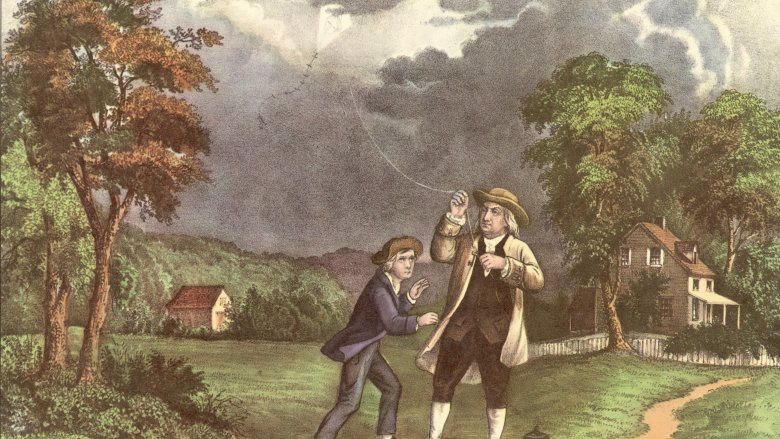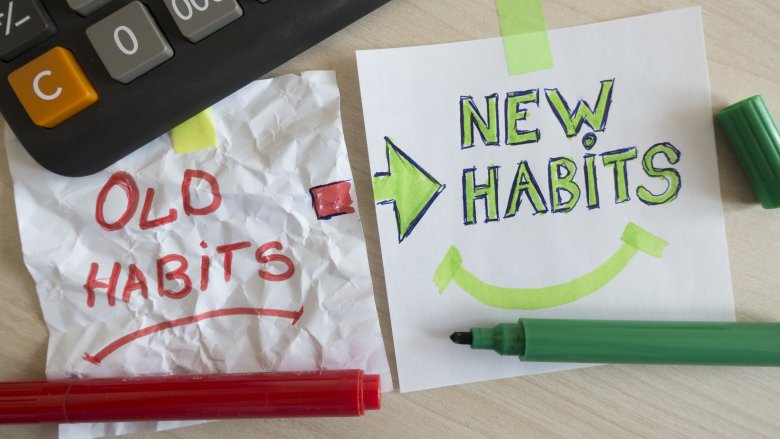The 5-Hour Rule The Most Successful People In The World Use
The movies make success look easy: Sure, you've got to go through some dramatic struggles for most of the film, but once times get hard enough, your problems are solved by a rapid-fire montage with a rocking soundtrack. By the end, you'll be blessed with muscles that can break through trees, the ability to hack any computer, a helmet that fires laser beams, or whatever else the plot requires. No prob!
In reality, though? Success is elusive. While stuffy, privileged billionaires like to pretend that their mega-companies were "self-made," the real world proves that succeeding at your dreams is less about stubborn individuality and usually more to do with having better resources, a strong support network, and access to a good education. When it comes to helping out the latter factor, one interesting theory that's emerged recently — based on what people like Elon Musk, Oprah Winfrey, and at least one former U.S. president do in their free time — is something called the five-hour rule. While the five-hour rule won't turn lemons into lemon shortcake overnight, it does have the potential to bring some real, positive changes into your life.
It's all about how you spend your free time
All around the world, people want to achieve things, whether it's being a major tennis star or running for mayor of their hometown. Now, everyone says success comes from working hard ... but there are a lot of people who work hard, yet don't become successful. What's the deal?
According to Entrepreneur, one important factor might be not just how you work, but how you spend your spare time. See, if you finish your exhausting 12-hour workday by melting into the couch and binging on social media, it's certainly understandable — but definitely not productive. So what if you spent that post-work time reading books, instead of vegging out on goofy YouTube videos about cats? While non-readers might think such a task sounds excruciating, a five-year study by Thomas Corley found that entrepreneurs who came to prominence from average backgrounds (based on their own creations, you know, rather than accidental viral cat video fame) usually had great reading habits. This led Empact co-founder Michael Simmons to coin a philosophy he deemed the five-hour rule: one hour a day of concentrated reading/education, five days a week. Hence, five hours. Simple as that sounds, though, the full spectrum of this concept is a lot more complex.
This whole thing goes way back
Needless to say, the five-hour rule is a contemporary idea. However, Michael Simmons says the roots behind the whole shebang go way back, with the key figure that inspired the five-hour rule being a guy who had crazy success in all kinds of major fields: Benjamin Franklin.
This electrified Founding Father quite vividly wrote about his affinity for libraries, where he claimed to spend at least one hour a day, every day of the week. See the connection? Franklin was so consistent about his library routine that he bragged rather loudly about how much better it was to spend the afternoon firing up his brain compared to the silly tavern-hopping, game-playing activities of his peers. Five hours a week isn't such a long chunk of time — c'mon, Ben, there was definitely still time to hit the bars after your daily study session — and Franklin's example definitely paints a picture of why the five-hour routine works. By adopting the activity of conscious learning into your daily habits, you change your routine and thus change your future. It's important to emphasize, though, that are three types of learning that apply to this principle, and each of them matters.
You got 3 buckets
As you've probably gathered, a steady reading habit is the key factor in the five-hour rule — and by reading this article, you're off to a good start! — but while the base concept is simple, putting it into practice requires deeper planning.
According to Inc., Michael Simmons compared Benjamin Franklin's routine to the background stories and lifestyles of people like Bill Gates, Mark Zuckerberg, and Oprah Winfrey. Now, putting capitalistic measures of success aside, there's obviously something these people did that worked when it came to marketing their products, ideas, and/or personalities within the confines of today's society. While all of them spent (and spend) at least five hours a week or more on conscious learning, the ways these sorts of entrepreneurial-minded individuals educate themselves can be sorted into three methods, or "buckets": reading, reflection, and experimentation. The first thing you've got to do, of course, is pick up a great paperback novel and start flipping through. Here's why.
Why reading is vital
Don't even try the whole "Oh, I've got no time to read!" excuse because you know it's nonsense. After all, no matter how cluttered your calendar is, you've definitely got less on your plate than the president of the United States, and the New York Times says former President Barack Obama is such a bookworm that he credits this habit with helping him survive those eight stressful years in the White House. So yeah, c'mon, you have time.
Here's why reading matters so much, though. According to Inc., readers not only tend to live longer than non-readers, but they're generally more creative and open-minded. Both of these qualities spur innovative thinking. Also, while snobs might look down on you for reading fiction, the Washington Post reports that one study demonstrated that reading fiction improves a person's empathy and theory of mind, since books force you to step into the shoes of other people and see why they do things. Also, for those who have long commutes, don't despair because Business Insider says listening to audiobooks counts as reading, in these regards. In other words, you really have no excuse for being part of the one-quarter of adults who Pew Research says haven't read even one chapter of a book in the last year. Read. Your brain will thank you.
Why reflection is a big part of success
The second bucket, reflection, is just as important as reading, but a bit harder to get started on. Admittedly, spending an hour chewing on the memory of your latest embarrassing failure might not be the most fun way to spend a rainy Thursday night, but it is a key way to avoid future failures. Reflection leads to improvement, and improvement is necessary for success.
As Harvard Business Review explains, an openness to self-reflection is what separates good leaders from bad leaders. If you do something wrong, you should own up to it, meditate on the matter, and see if you can fix the problem. Even if you're not the boss, one study showed that when employees in a call center consciously spent just 15 minutes a day reflecting on any pros or cons from their completed shift, for 10 straight days, they performed an astonishing 23 percent better than those who didn't reflect. Now, you probably don't want to spend your life working in a call center, but the key connection here is that reflection improves performance. So if you're following the first bucket — reading — and accompany it with deep reflection five days a week, you're already over halfway to making the five-hour rule part of your weekly routine. Hold on, though, because there's one bucket still left to cover.
The necessity of experimenting
Failure sucks. Whether it's a scraped knee, a lost job, or a blown date, everybody's been there. But hey, you remember that great moment in Batman Begins, where Alfred inspires Bruce Wayne by saying, "Why do we fall? So we can learn to pick ourselves up"? Well, the old man was onto something because failure is what makes you succeed, and if a guy like Bruce could become more than just a man, you can become ... well, whatever you want. But probably not Batman because that's not possible in real life.
Innovation only comes from people sticking their necks out and trying new things, which is why "experimentation" is considered the third and final bucket. As explained by entrepreneur Thomas Oppong, society thrives on change. Change comes from disruption. Disruption is the result of taking chances. Sometimes there is no better way to learn to succeed than by failing miserably, so if it happens, just give it another go.
At this point, once you've integrated the three buckets into your daily routine, it's time to look at your other regular habits and see where you can make improvements.
How keystone habits impact your success
The five-hour rule is all about managing your habits. And no matter what, never underestimate how much your seemingly innocuous habits of today impact your future dreams. This is because of the so-called transfer effect, according to CNBC, wherein you develop certain habits that lead to other habits. For a negative example, if you habitually spend your savings when you feel sad, it might lead to you maxing out your credit cards, since you don't have savings anymore. And everything can quickly go haywire from there. On the positive side, a keystone habit like exercising could lead you to the habit of eating healthy food. So if you read books instead of binging on reality TV, then yes, it will improve your cognition and lead to other new positive habits developing.
This is relevant to your future success story because negative keystone habits weigh down your future like a boulder around your neck, while positive habits do the opposite. Now, according to Business Insider, Thomas Corley differentiates these opposites as "rich" habits and "poor" habits. Those two terms are pretty classist, to be honest, since there are plenty of lazy and/or unhealthy rich people out there, and billions of intensely hard-working people living at the poverty level. Putting the obnoxious wealth-worshiping rhetoric aside, though, the basic notion behind the snowballing of keystone habits makes a lot of sense.
Confronting the "self-made" myth
There's no such thing as a "self-made" millionaire, and definitely not a self-made billionaire. Unless you consciously spawned as an embryonic form in the center of a black hole with no family and clawed your way out through sheer force of will ... no, you're not self-made. As Forbes explains, every successful businessperson on Earth had help along the way, whether it was through family, friends, a bank loan, access to food, the internet, an uncle who gave them their first job, etc. That's reality. Even if you start your own company, you're still reliant on all your employees, investors, and clients, plus those great suggestions your spouse makes when your new advertisement looks shoddy. Real success usually comes from teamwork, not prideful individualism.
The reason the myth of self-made success persists is really just judgment. When a rich jerk claims they did it all themselves, it's easier for them to stomp on that struggling employee begging for better wages. As Teen Vogue points out, the fact that someone like Kylie Jenner gets hailed as "self-made" makes it pretty clear how fake the whole concept is. So yes, improve your life with the five-hour rule, but when success knocks on your door, it's okay to drop the ego and admit you had help.
When it comes to the five-hour rule, though, it's important to distinguish that it's about success, not wealth, and there's a big reason those two things aren't the same.
The 5-hour rule isn't about making money: it's about achieving your goals
If you Google "five-hour rule," most of the articles you'll read will go on and on about rich people and poor people, often using classist language that blames poor people for being poor. This sort of narrative ignores fundamental truths about how the real world works and leads hopeful people in the wrong direction. In reality, as Observer points out, spending all your time stressing about how to make more money is a good way to end up exhausted and broke instead of learning new things or pursuing your dreams.
Ben Franklin, though? When he crammed in the library for five hours a week, he wasn't trying to get rich. He was trying to learn because he had big, amazing goals he wanted to achieve. That right there is the important kernel of truth in all this. Because while spending five hours a week reading good books won't necessarily fill your pockets with cash, what it will do is develop your mind. By adopting the daily habits of reading, reflection, and experimentation, your approach to the struggles in life will become increasingly educated, innovative, and clever. Instead of killing time, time will become an opportunity for growth. Combine that with a good support group, and you'll have a leg up on this strange thing called life ... and maybe even make some of your most ambitious dreams come true.









